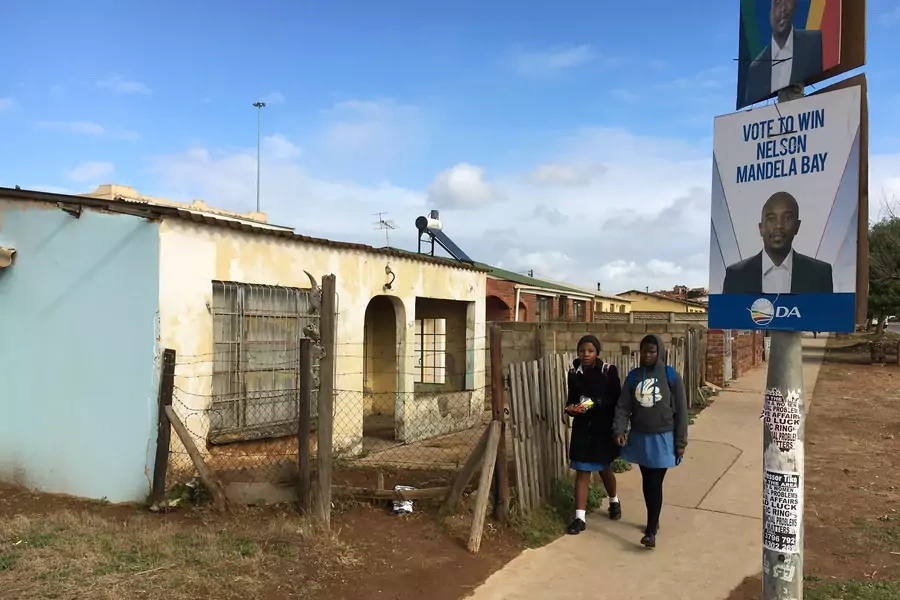South Africa’s DA Struggles to Broaden Support Amid Zuma's Departure

The Democratic Alliance (DA) is the official opposition to the governing African National Congress (ANC) in South Africa’s parliament. It is the second largest party in the country in terms of electoral support, and it is the only party to have increased its share of the vote in every election since 1999. It holds 89 of 400 seats in parliament. It controls outright the provincial government of the Western Cape and governs in coalition Johannesburg, Pretoria, and Port Elizabeth. Of South Africa’s largest cities, only Durban is still governed by the once-dominant ANC. With strong links to civil society, the DA played a crucial role in driving from power former president Jacob Zuma and for keeping alive the criminal proceedings against him. The DA regularly presents itself as the party of good governance, the rule of law, and support for the constitution. Its new party leader, Mmusi Maimane, is young, articulate, charismatic, and black. He made an excellent impression during a recent visit to Washington DC.
Yet the party faces a troubled future. Electoral politics in South African continue to be very largely a racial census. About 9 percent of the population is white, 9 percent “coloured,” and perhaps 2 percent of South Asian origin. The overwhelming majority of the population—some 80 percent—is black African. The DA’s electoral support mostly comes from racial minorities that tend to be much wealthier than the black majority. The DA is seeking to broaden its appeal to the black majority, especially among the “born frees,” those that came of age after the end of apartheid, and among the black urban middle class. However, among the former, voter participation is low, as it is among that age group in most electoral democracies. The black middle class is smaller than the amount of media attention it receives would indicate, and so far, the DA has had limited success in attracting its votes.
More on:
The DA is certainly trying to attract black support, but control of the party largely remains in white hands, despite Mmusi Maimane’s leadership. On the burning issues of the day, such as service delivery in the townships, land redistribution to poor blacks, or meaningful reform of education in rural areas, the DA’s policies appear to be underdeveloped and largely unappealing. Among many black South Africans, the DA remains a “white” party; some in the townships even think, incredibly, that it aims to restore apartheid.
While he was president, Jacob Zuma was “the gift that kept on giving” for the DA. With his ties to corruption, his reputation for sexual predation, his multiple wives, and his efforts to undermine institutions of government, he provided a focus for DA opposition and a rallying cry for electoral support. Now he is gone, replaced as president and ANC party leader by the urbane and skillful Cyril Ramaphosa, an architect of the post-apartheid constitutional settlement. His moves against corruption risk stealing the clothes of the DA and have engendered confidence among financial institutions. Further, the DA’s reputation for good governance has been marred by the water crisis in Cape Town, fights with coalition partners in Port Elizabeth, and a generally disappointing performance in Johannesburg.
The DA is also burdened by the ineptness of some of its leaders. Former mayor of Cape Town, current premier of the Western Cape, and former DA party leader Helen Zille is notorious for her insensitive tweets. For example, she ignited a firestorm in 2017 when she said that the legacy of colonialism was not all bad. Faced with the possible discipline by the party, she apologized. Even if what she said objectively is true—she cited South Africa’s superior infrastructure—such comments only set back DA efforts to attract black voters in racially wounded South Africa. Other racially insensitive comments by whites associated with the DA also attract wide attention. If it is to break out of its white and “coloured” electoral ghetto, the DA will need leaders, political style, and policies that speak to the concerns of the poor, black majority. Thus far, its progress has been disappointing, despite Mmusi Maimane.
More on:
 Online Store
Online Store